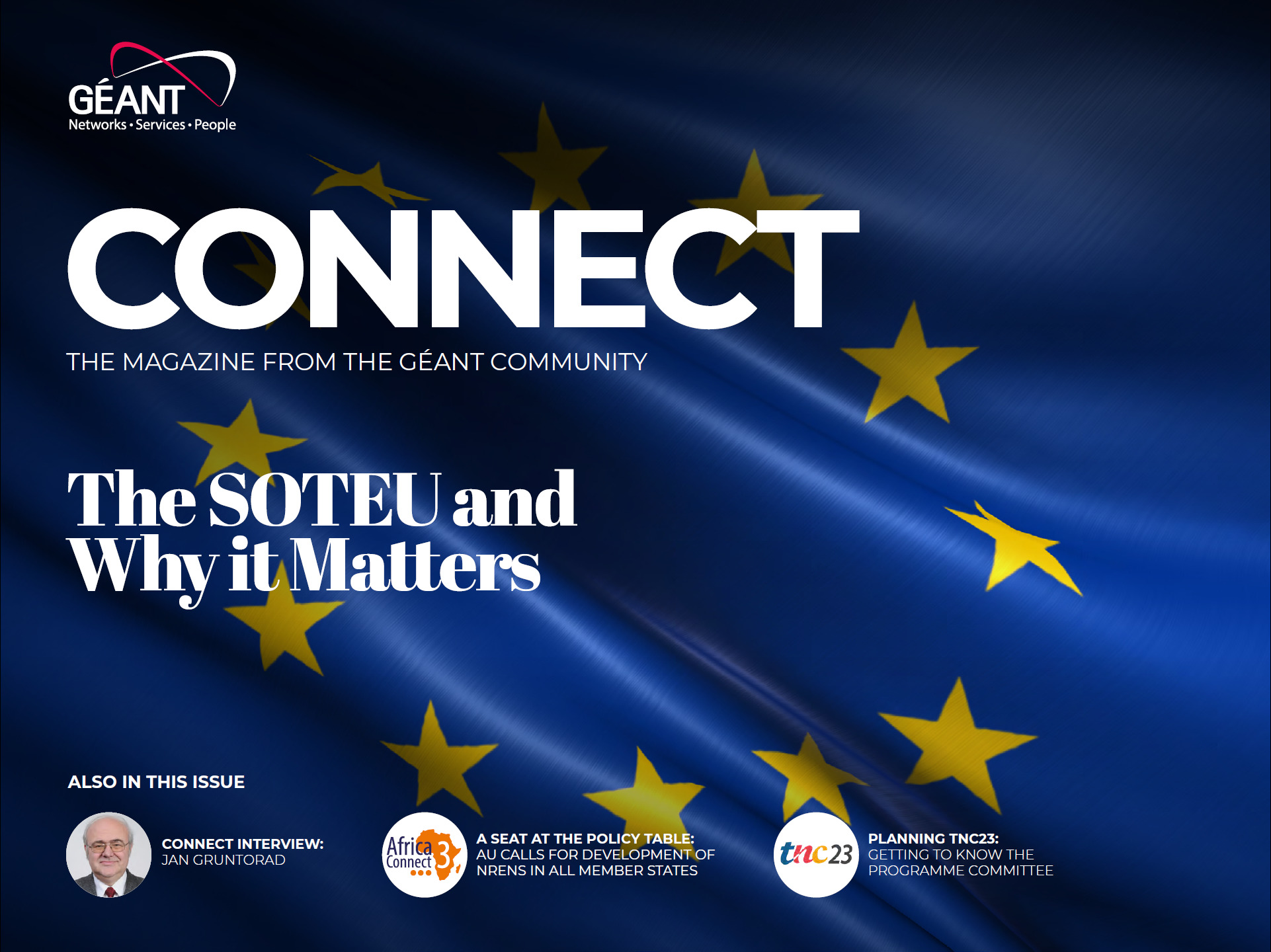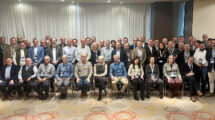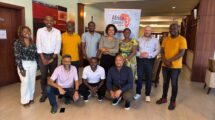

For the first time in three years, the TNC Programme Committee met in person in Amsterdam to discuss the content and layout for TNC23 that will take place in Tirana, Albania on 5-9 June 2023.
CONNECT took the opportunity to sit down with GÉANT’s Nicole Harris, who supports the Programme Committee (PC), and TNC23 PC Chair Ann Harding from SWITCH. We talked about the role of the PC, its decision-making process and the rationale behind the choices during the conference planning stage – from location, theme, and title to content, keynotes, and much more.
What is the role of the PC?
Ann: TNC is a community event for and by the community. As the PC it is our job to make sure that the interests and expectations of the community are reflected. This is not only selecting papers but deciding the programme balance across the week and of course the theme. We don’t get involved in the choice of the location, of course, but every location and also its venue influences our decision-making process, as the location influences the theme. And of course, the venue also influences the programme. We had to take into account hybrid and full remote options in the past. Remember that in Tallinn for example, we had to have a split screen for the opening plenary, as the main auditorium wasn’t big enough for our audience. That led to a very innovative and creative way of opening the conference.
How is a PC formed? How are members chosen?
Nicole: We normally have around 20 members, and we aim to make the PC as inclusive as possible. So, there needs to be a good mix of experts across the main content areas – network, trust and identity, security, clouds, and community. While the GÉANT Association membership is of course European, we recognise that TNC is a global favourite, so we also always invite experts from the global NREN community. We look at age and gender and also make sure that new members to our community are represented. Staff from the GÉANT organisation also support us regularly. Most members of the PC stay for longer than just one year, but that to a certain extent is self-selective. In the end, being a member of the TNC PC is a lot of hard work, so it requires a real level of dedication and commitment for people to continue doing it over the years.
What are the main challenges faced in the conference preparation phase?
Ann: It’s what Nicole just mentioned: the time necessary to bring the conference together. We are all volunteers and have regular jobs of course. The response to the TNC Call for Proposals can be quite overwhelming and has to be handled in a very condensed window! But a good PC has the expertise, distributes the workload well, and works together as a team, so in the end it is a lot of fun bringing the programme together. There are some lively bargaining sessions sometimes between the different themes. And at least this year, we can meet again in person. For TNC21 and TNC22, we could only meet via VC and that was just another level of complication as all the interactive building of the programme had to happen online. Hats off to my predecessors Sabine Jaume-Rajaonia and Anna Wilson for overcoming these extra-hurdles! We also often struggle with securing keynote speakers. As we are all in a not-for-profit environment and speakers increasingly wish to be paid, we have to do a lot of work and persuasion for really good keynote speakers to agree to support us.
What does the PC take into consideration when planning TNC? What drives its choices and decisions?
Nicole: As we said earlier, we very much are guided by the location and the venue. The other element here is the participants’ feedback we receive after each TNC. For example, one issue identified by participants to TNC22 in Trieste was that BoFs took place in the evenings and people felt that the days were just too long. We will look into changing that. Or, we have seen that again at TNC22, the poster sessions have not been very successful. We have been discussing how to increase the attractiveness of the poster sessions for years now, but still haven’t been able to fully crack it. For TNC23, we are toying with the idea of creating more of a ‘community-hub’, so watch this space.
Ann: We want to make sure that we maintain the core nature of TNC. Our community is unique, and it’s important that all of our community is fully represented on the programme. We are not looking for every talk to be a slick production. We want to give the opportunity for speakers who might not normally present, to be on stage telling us about their work on their new idea and we want to hear what people are really doing. Authenticity is important. For some of our speakers, English is a third, fourth, or even fifth language and it can be daunting to stand up in front of a huge crowd and present even though their work is of great interest. Real and engaged is better than perfectly polished any time.
What is the essence of TNC?
Ann: Community, Collaboration, Coffee and loads of Fun! You know you’ve had a good TNC when you can’t speak properly the next week.
Nicole: Completely agree, Ann. And I would add the participants. All we do here in the PC is prepare the conference as best we can – once we get there, really it is the participants who make and shape TNC!
To find out more about TNC23 visit tnc23.geant.org
Read more about the TNC23 Organising Committee and Programme Committee at tnc23.geant.org/about
The TNC23 Call for Proposals for Single Presentations, Demonstrations and Workshops is now open. Read the Submission Guidelines and submit a proposal: https://tnc23.geant.org/submit

Read or download the full magazine here







